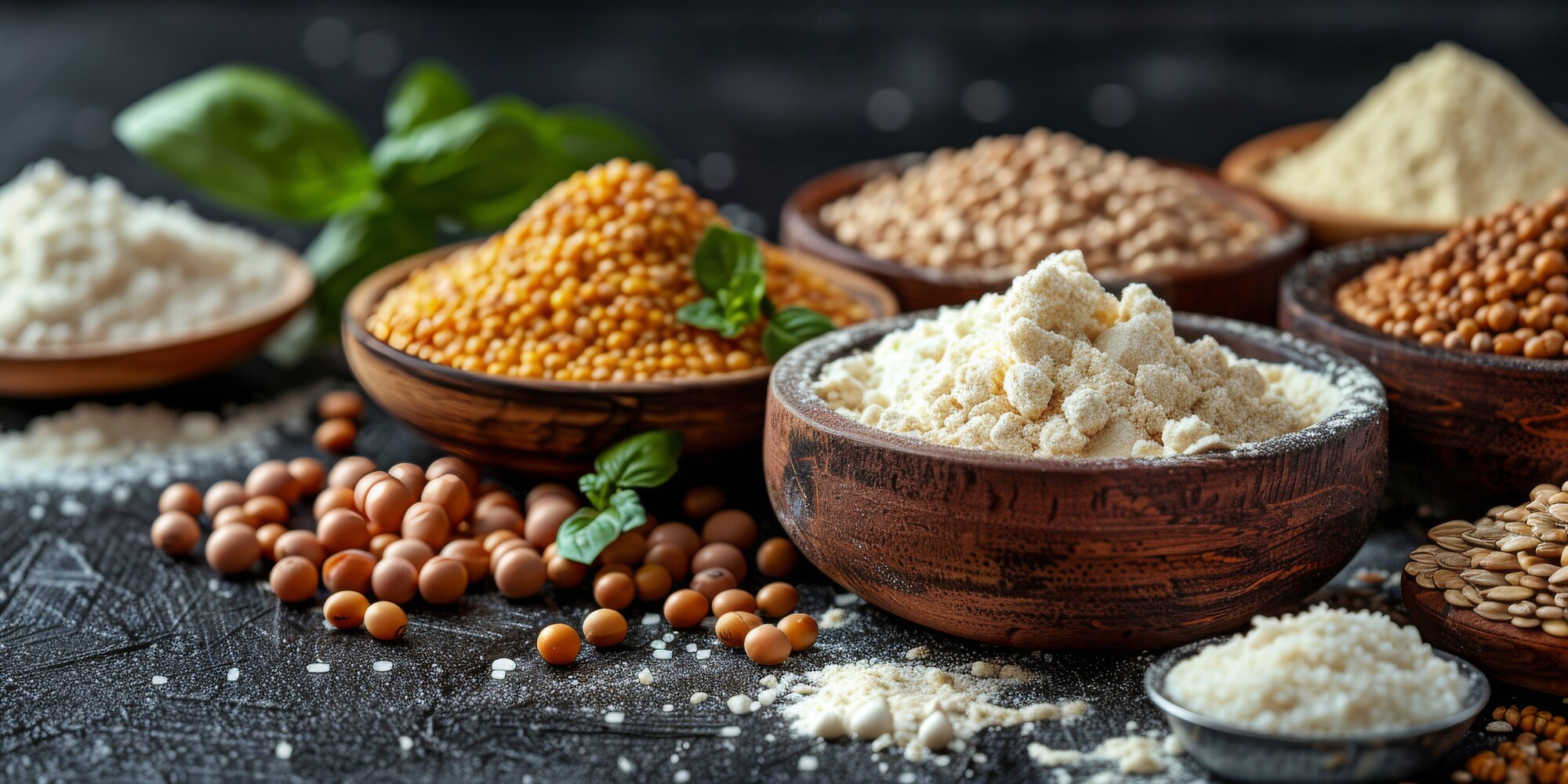The Most Common Myths About Colon Cancer
Many people want to live healthier and stay healthy. They wonder how they can best protect themselves from cancer. However, some myths prevent people from taking the right steps. So, it's high time to dispel some persistent myths about colon cancer.

"Only older people are affected"
One example of such a misconception is the assumption that only older people are affected by colon cancer. This is false. While the risk does indeed increase with age, younger people can also develop the disease, especially if colon cancer runs in the family.
While the number of new cases increases significantly in middle age, hereditary colon cancers usually occur much earlier. The two most common hereditary forms of colon cancer (HNPCC syndrome and familial adenomatous polyposis) together account for 5% of all colon cancer cases and can occur in childhood or young adulthood.
"No symptoms – no cancer"
Another widespread misconception is the assumption that you can't have colon cancer without symptoms. However, there are no reliable early symptoms, which is why the disease is often overlooked for a long time without screening. In the vast majority of cases, the pre- and early stages of colon cancer are asymptomatic.
Even today, 70 to 90% of all colon cancer cases are only diagnosed when the affected person develops symptoms and the tumor is therefore often already advanced. Increased willingness to undergo screening could significantly reduce these numbers.
"A healthy lifestyle is enough protection"
Some people are also convinced that a healthy lifestyle provides sufficient protection. But this, too, is a misconception. A healthy lifestyle can reduce the risk and have a positive impact on overall health. However, it does not rule out colon cancer.
What Really Helps – Risk Factors and Protective Measures
Genetics and Random Mutations
One's own genes alone can be responsible for the onset of the disease. For most people, however, it is not specific genes that trigger the disease; rather, the interaction of their genes increases or decreases the likelihood of developing colon cancer over the course of their lifetime.
Genes and behavior interact, and both determine whether the disease develops. This means that one's own behavior has a significant influence. A person who, due to their genetic predisposition, has a higher risk of developing the disease can positively influence this risk through a healthy lifestyle. In contrast, a person with a low genetic risk may lead an unhealthy lifestyle without developing the disease. But there are other factors that make the whole thing even more complex.
Researchers believe that a large proportion of cancer cases are caused by so-called random mutations. In these cases, DNA mutations arise purely by chance and later lead to cancer. This makes colorectal cancer screening all the more important to detect cancer at an early stage.
Another factor that makes screening so important is the role of other pre-existing conditions. For example, diseases such as Crohn's disease and ulcerative colitis can also increase the risk of colorectal cancer
On the one hand, these factors show that a healthy lifestyle alone is not enough to protect against colon cancer. On the other hand, they make the role of healthy behavior even more urgent. Because if the risk is already elevated, you want to know all the other factors are on your side. And here, too, it's important to be well-informed.
Nutrition: What Protects and What Harms
When shopping at the supermarket, you can do many things right or wrong, because a healthy diet has numerous positive effects on health. However, when it comes to colon cancer, the research is not always clear: Often-heard tips such as a high-fiber diet, vegetables, fruit, fish, garlic, and coffee tend to be positive, but their protection against colon cancer is not sufficiently documented by studies.
One example of this is the number of studies on coffee consumption and colon cancer risk. There are a large number of observational studies that show a positive effect of coffee. However, this has not been confirmed in large-scale studies. Therefore, it remains unclear how healthy coffee is for the colon. However, it is probably not unhealthy.
Red and processed meat has been shown to have a negative impact on the risk of colon cancer. Studies indicate an increased risk of colon cancer, especially with processed meat. The risk is considered likely for unprocessed red meat. Anyone who avoids beef, lamb, pork, and the like at their next barbecue will be doing themselves a real favor in the long run.
Alcohol – Health Myths Debunked
Recent research on alcohol is also rather sobering for all spirits lovers. No alcohol at all is better than a little – both for colon cancer and other diseases. One of the biggest myths has persisted for decades: a glass of red wine a day is healthy. But this is probably not true.
In the studies at the time, it was difficult to find people who consumed no alcohol at all as a comparison group. Therefore, moderate drinkers were compared with former, now sober alcoholics. And these, unsurprisingly, were unhealthier. The myth was born.
Those who don't want to completely abstain from alcohol can follow the WHO's recommendations. According to these recommendations, the risky amount of alcohol starts at 24 grams per day for men and 12 grams per day for women. For women, this corresponds to more than 0.1 liters of wine or sparkling wine, more than 0.25 liters of beer, or 4 centiliters of spirits per day. For men, it's twice that amount. This doesn't make alcohol particularly unhealthy, at least in these small amounts. But it's still true: even small amounts of alcohol increase the risk of cancer.
Exercise, Weight, and Smoking
Regular exercise is another important factor that you can control. Current studies don't say exactly how much exercise and physical activity lead to a significant reduction in colon cancer. However, in general, more exercise reduces the risk. A large meta-analysis of 21 studies found a risk reduction of over 25 percent between the most active and the least active study participants. The exact mechanism by which exercise protects the colon is still unknown.
For each individual, this means that every minute of exercise is good. Furthermore, regular exercise has a positive impact on mental health, all cardiovascular diseases, many other types of cancer, and possibly existing obesity. The latter can also play a role in the development of colon cancer. Studies have shown that severe obesity had the greatest impact when the weight gained occurred between early adulthood and midlife. However, weight gain at a later age has also been shown to have adverse effects. The greater the weight gain, the greater the negative effects. So, it can be worthwhile to lose a few pounds if you are overweight. Every pound counts.
And last but not least, smoking is one of the most important preventable risk factors for the development of colon cancer. Tobacco consumption increases the likelihood of developing colon polyps – precancerous cells – and increases the risk of cancerous cells becoming malignant. It also increases the risk of dying from colon cancer. And those who are unable to quit smoking completely can reduce their risk by smoking less.
Many of the measures described are extremely helpful. However, they are no substitute for preventative care.
Prevention saves lives
Stool blood test and colonoscopy
From the age of 50, every insured person in Germany is entitled to regular screenings for the early detection of colon cancer. The costs are covered by both statutory and private health insurance companies. You can choose between two methods: colonoscopy and the stool test for invisible blood (FIT = fecal immunoassay).
A blood-in-stool test uses a small stool sample and a test strip to determine whether there are traces of blood in the stool. Colon tumors bleed more than healthy intestinal mucosa. These stool tests detect even the smallest amounts of blood in the stool that are not visible to the naked eye. Since it is non-invasive, the test is more attractive to some than a colonoscopy. Such a test can be performed every two years.
Colonoscopy is somewhat more complex: After the colon has been prepared for the examination with laxatives and a one-day abstinence from solid food, the entire colon can be inspected using a long, flexible tube (colonoscope). Polyps can be removed immediately during the examination, or a tissue sample can be taken for the laboratory. During a colonoscopy, the doctor can even remove precancerous cells before they develop into tumors.
But is colonoscopy still irreplaceable for some as a preventative measure? This must be decided on a case-by-case basis, as family history and previous medical conditions should be taken into account when deciding whether a stool test is sufficient or a colonoscopy is preferable.
New Studies
In June 2025, the results of the COLONPREV study were published, which compared both methods: the stool test was non-inferior to colonoscopy in terms of the risk of death from colon cancer. This means that the risk of dying from colon cancer despite screening was almost identical for both screening methods.
The NordICC study examined the screening value of colonoscopy compared to no screening. The result, published in 2024, is clear: the risk of colon cancer was reduced by approximately 50% with screening.
If colon cancer is detected at an early stage, the prospects for cure are good. This is why screening can save lives.
Conclusion: Improve your lifestyle – but don't forget about prevention
Some myths have already been dispelled, and we now know: Colon cancer also affects younger people. Symptoms alone cannot be relied upon to detect the disease. A healthy lifestyle brings important benefits, but still doesn't guarantee 100% protection.
Therefore, it is extremely important to detect colon cancer as early as possible. If colon polyps are involved – potentially precancerous lesions – they can still be easily removed. Prevention and early detection go hand in hand: A healthy lifestyle can effectively reduce your risk, while regular screenings make early detection possible.
Data4Life's digital solutions make health data researchable and promote evidence-based medicine.
The contents of this article reflect the current scientific status at the time of publication and were written to the best of our knowledge. Nevertheless, the article does not replace medical advice and diagnosis. If you have any questions, consult your general practitioner.
Originally published on







